Over the past 8 years, our team has perfected their craft by creating custom logistics apps tailored to the unique needs of companies. In this article, we want to explore the types of apps used in logistics businesses.
And if you’re thinking about building a custom app for your company (or adding new features), we would be happy to answer all your questions and give honest advice. You can always connect with us via info@volpis.com
Types of logistics apps in 2026
Here are the most common types of apps used in logistics businesses:
1) Fleet management apps
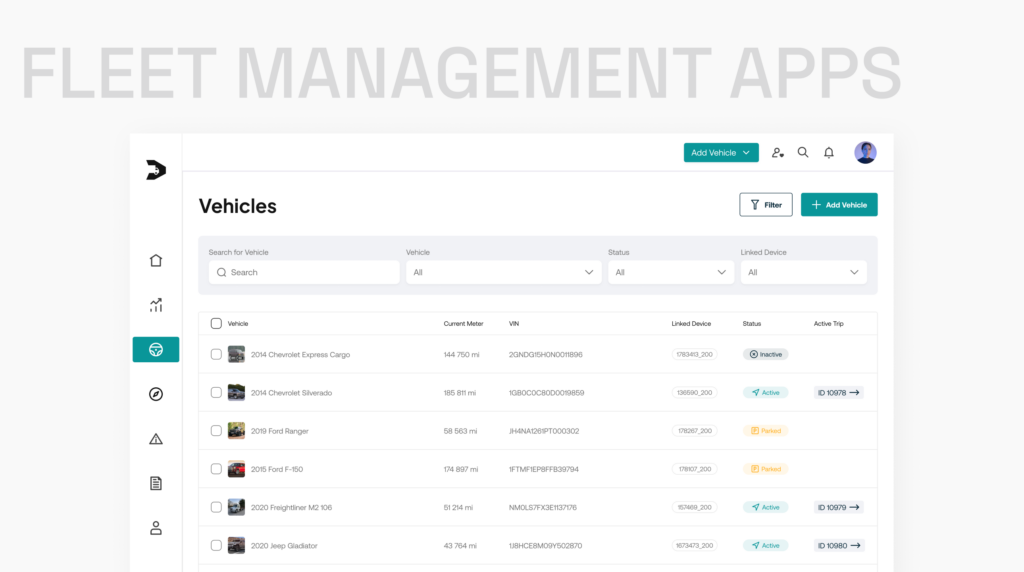
Fleet management apps utilize GPS tracking to monitor vehicle locations, optimize routes, and enhance communication between drivers and dispatchers in real-time. These apps streamline logistics operations, reduce fuel consumption, ensure timely deliveries, and enhance overall fleet safety
| How it can help business | Fleet management apps improve efficiency, reduce operational costs, minimize delivery times, enhance customer satisfaction, and provide valuable insights into fleet performance. |
| Main features | GPS Tracking for Real-Time Monitoring Route Optimization Algorithms Two-Way Communication Tools Driver Performance Monitoring Metrics Vehicle Maintenance Reminders Fuel Consumption Monitoring Idle Time Tracking Incident Reporting and Analysis Compliance Management (e.g., Hours of Service) Asset Utilization Monitoring |
| Most popular apps | Fleetio, Verizon Connect, KeepTruckin + RandOne |
| Price and time range for development | Development costs can range from $20,000 to $100,000, with timeframes typically varying from 2 to 7 months. |
2) Inventory management apps
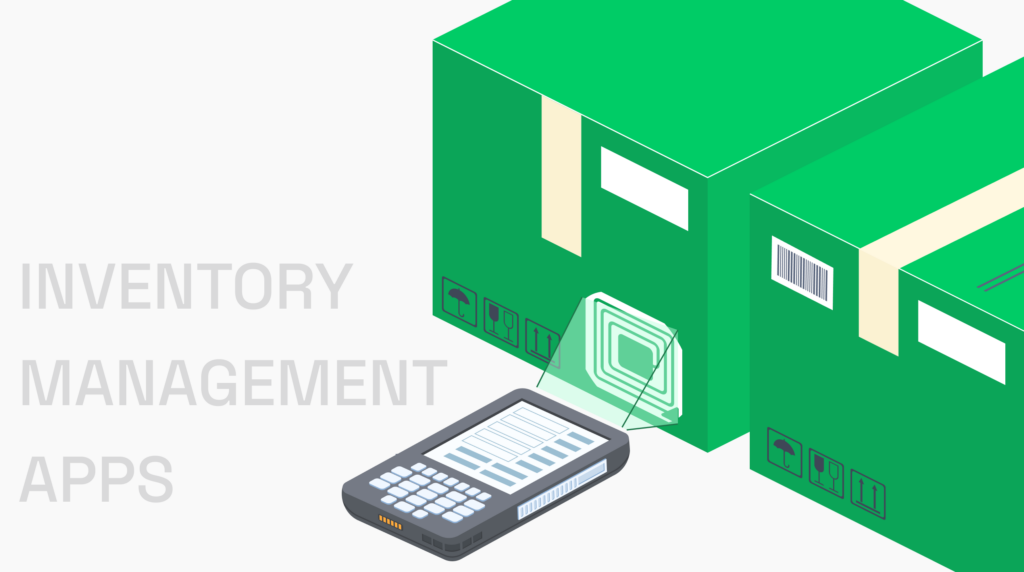
Inventory management apps streamline tracking and management processes through barcode scanning and RFID technology, allowing for accurate inventory control and stock-level optimization. These apps facilitate efficient inventory management, reduce stockouts, minimize carrying costs, and improve overall warehouse productivity.
| How it can help business | Inventory management apps optimize inventory levels, reduce errors, streamline operations, improve order fulfillment rates, and provide real-time visibility into stock movements. |
| Main features | Barcode Scanning and RFID Technology Real-Time Updates on Stock Levels Inventory Replenishment Alerts Batch and Serial Number Tracking Integration with ERP Systems Cross-Channel Inventory Syncing Demand Forecasting Multi-Warehouse Support Quality Control Inspections Vendor Management |
| Most popular apps | Fishbowl Inventory, Zoho Inventory, TradeGecko |
| Price and time range for development | Development costs typically range from $30,000 to $150,000, with timeframes ranging from 4 to 10 months. |
3) Last-mile delivery apps
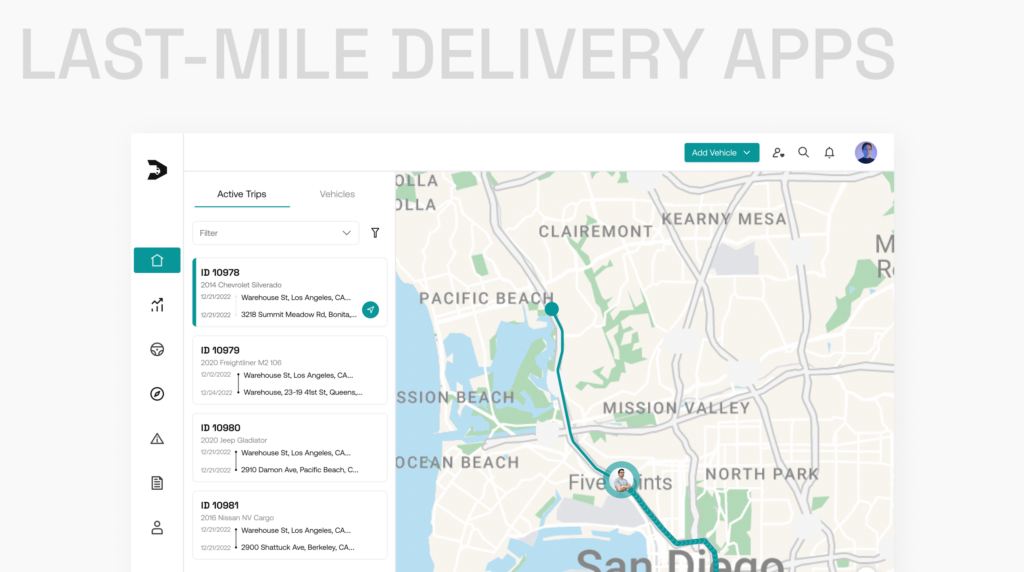
Last-mile delivery apps provide delivery personnel with optimized route planning, ePOD capabilities, and customer communication tools, ensuring efficient and transparent delivery processes. These apps enhance customer satisfaction, reduce delivery times, minimize failed deliveries, and improve overall delivery performance.
| How it can help business | Last-mile delivery apps optimize delivery routes, provide real-time tracking updates, streamline communication with customers, reduce delivery costs, and improve operational efficiency. |
| Main features | Route Optimization Algorithms Electronic Proof of Delivery (ePOD) Capabilities Real-Time Tracking Updates Customer Communication Tools Driver Dispatch and Assignment Delivery Analytics and Performance Reporting Geolocation-Based Delivery Zones Delivery ETA Notifications for Customers In-App Navigation Assistance Delivery Verification Photos |
| Most popular apps | Onfleet, Route4Me, Bringg |
| Price and time range for development | Development costs typically range from $25,000 to $120,000, with timeframes ranging from 3 to 8 months. |
4) Warehouse operations apps
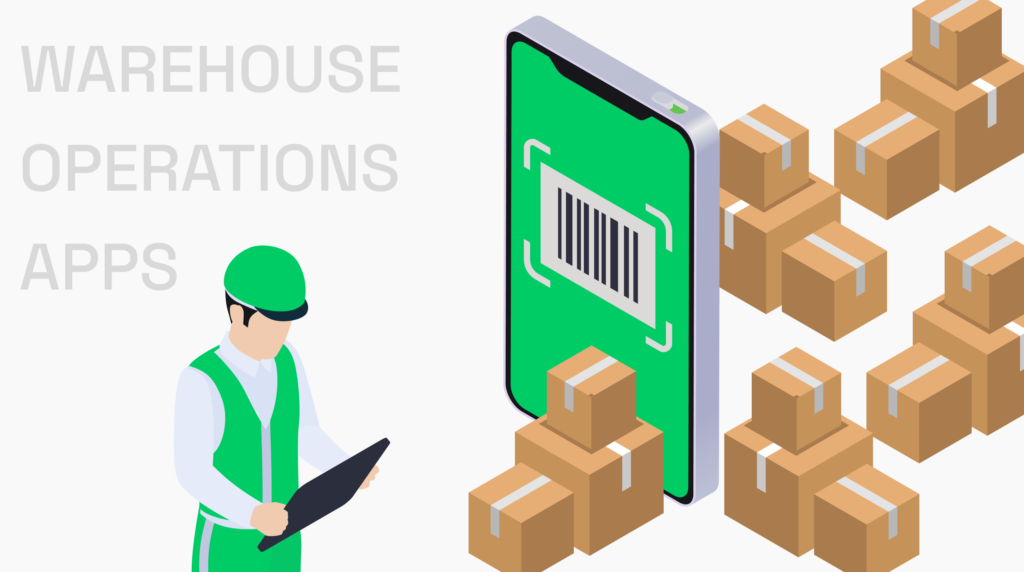
Warehouse operations apps streamline various activities such as receiving, picking, packing, and shipping, improving accuracy and efficiency in warehouse processes. These apps increase throughput, reduce errors, optimize storage space, and enhance overall warehouse productivity.
| How it can help business | Warehouse operations apps automate tasks, streamline workflows, improve inventory accuracy, reduce fulfillment times, and provide valuable insights into warehouse performance. |
| Main features | Digital Pick Lists Barcode Scanning Navigation Aids Integration with Warehouse Management Systems (WMS) Cross-Docking Support Advanced Inventory Slotting Automated Replenishment Dock Scheduling and Management Temperature and Humidity Monitoring (for Cold Storage) Employee Task Management and Productivity Tracking |
| Most popular apps | Warehouse Mobile Solutions, SnapFulfil, Logiwa |
| Price and time range for development | Development costs typically range from $20,000 to $90,000, with timeframes ranging from 2 to 6 months. |
5) Parcel recipient apps
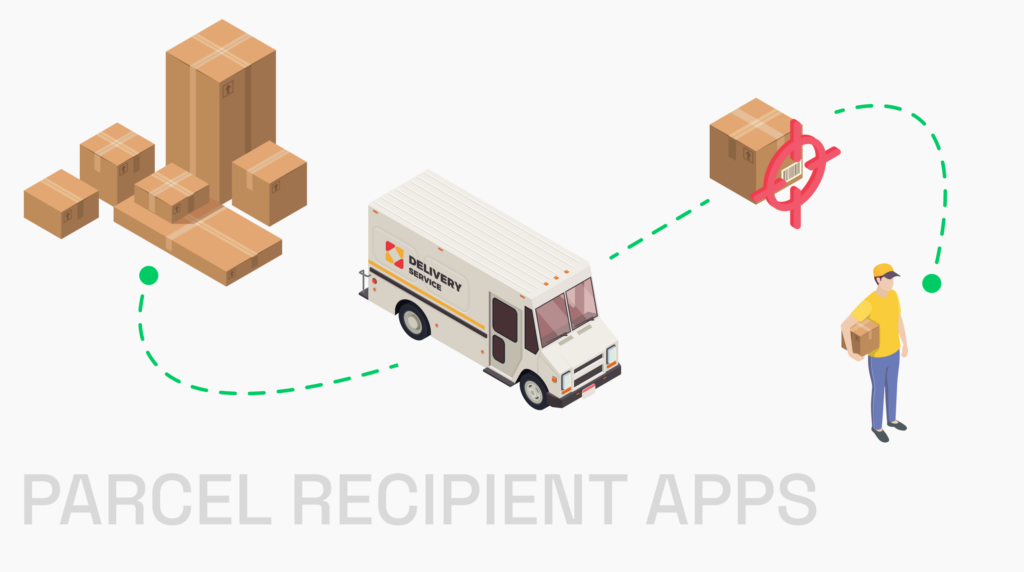
Parcel recipient apps, similar to those offered by Meest, target the end-users who receive packages. These apps allow recipients to track parcels, confirm receipt, and access other delivery-related services, enhancing the overall customer experience.
| How it can help business | Parcel recipient apps improve transparency, enhance customer satisfaction, reduce delivery errors, and streamline the confirmation and feedback process. |
| Main features | Real-Time Parcel Tracking Delivery Notifications Electronic Confirmation of Receipt Customer Feedback Tools Parcel History and Records Integration with E-commerce Platforms In-App Customer Support Delivery Rescheduling Options Secure Login and Account Management Geolocation for Pickup Points |
| Most popular apps | Meest, UPS My Choice |
| Price and time range for development | Development costs typically range from $20,000 to $90,000, with timeframes varying from 2 to 6 months. |
6) Transportation management system (TMS) apps
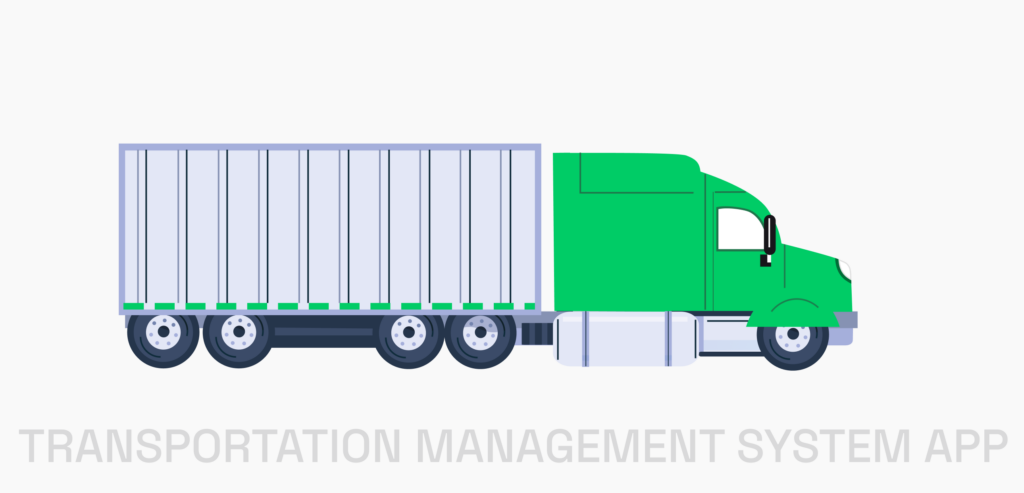
Transportation management system (TMS) apps help businesses plan, execute, and optimize the physical movement of goods. They provide visibility into transportation operations and ensure timely delivery of freight and compliance with regulations.
| How it can help business | TMS apps optimize shipping routes, reduce transportation costs, improve supply chain efficiency, and provide real-time visibility into freight movements. |
| Main features | Freight Management Carrier Selection and Management Route Optimization Shipment Tracking Freight Payment and Audit Order Management Load Optimization Real-Time Analytics and Reporting Integration with ERP and WMS Compliance Management |
| Most popular apps | Oracle Transportation Management, SAP Transportation Management, MercuryGate |
| Price and time range for development | Development costs typically range from $50,000 to $200,000, with timeframes varying from 6 to 12 months. |
7) Supply chain visibility apps
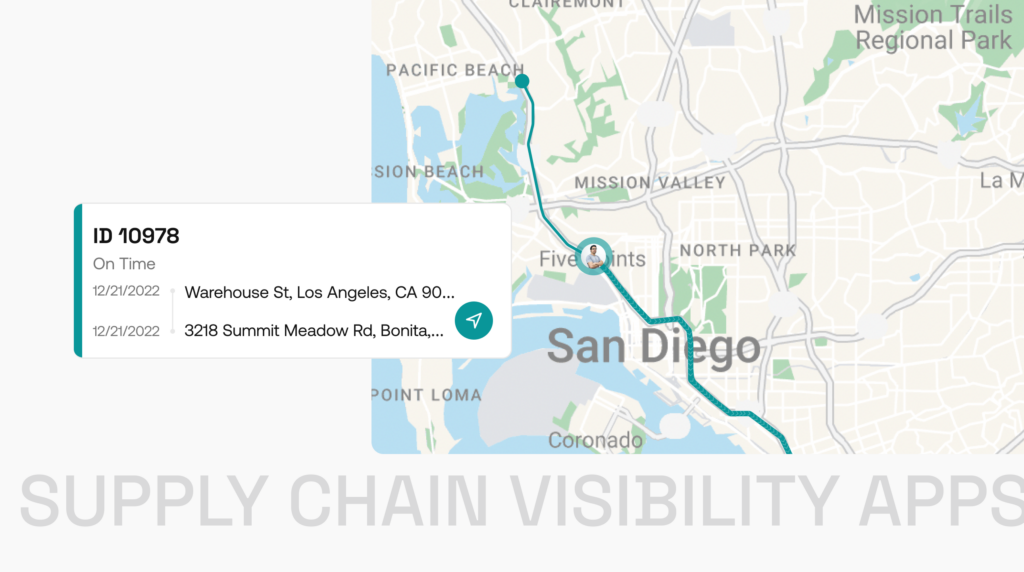
Supply chain visibility apps provide real-time tracking and monitoring of goods throughout the supply chain. They enable businesses to gain insights into inventory levels, shipment status, and potential disruptions.
| How it can help business | Supply chain visibility apps enhance transparency, improve inventory management, reduce disruptions, and increase overall supply chain efficiency. |
| Main features | Real-Time Tracking of Shipments Inventory Level Monitoring Alerts and Notifications for Delays Integration with IoT Devices Predictive Analytics for Supply Chain Risks Data Visualization Dashboards Supplier Collaboration Tools Order Fulfillment Tracking Demand Forecasting Performance Metrics and Reporting |
| Most popular apps | Project44, FourKites, ClearMetal |
| Price and time range for development | Development costs typically range from $40,000 to $150,000, with timeframes varying from 4 to 10 months. |
8) Route planning apps
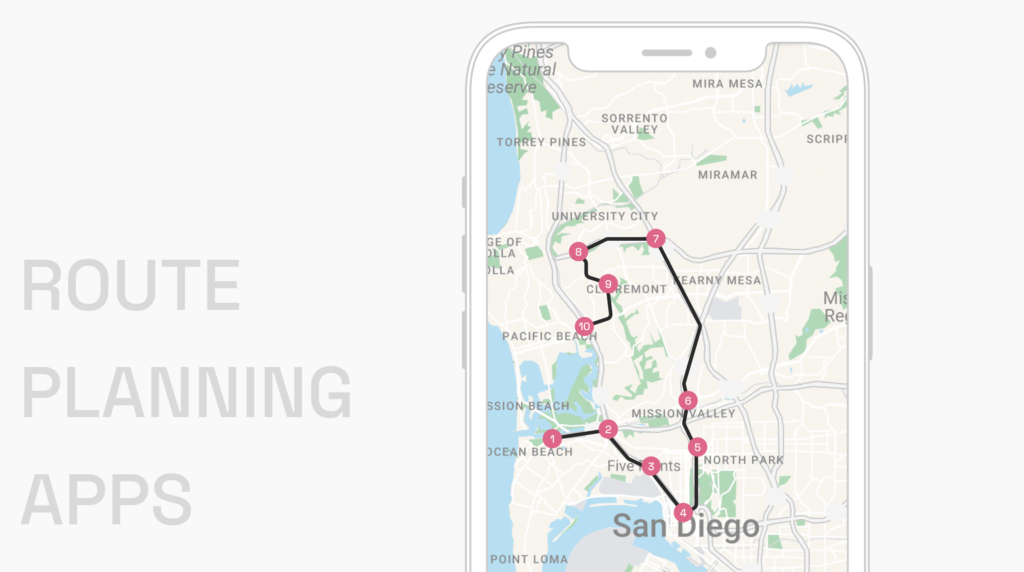
Route planning apps help logistics companies optimize delivery routes, reducing travel time and fuel consumption. They offer features like traffic monitoring, dynamic rerouting, and driver dispatch.
| How it can help business | Route planning apps reduce operational costs, enhance delivery efficiency, improve customer satisfaction, and minimize the environmental impact. |
| Main features | Dynamic Route Optimization Real-Time Traffic Monitoring Driver Dispatch and Management Geofencing and Route Constraints Integration with Fleet Management Systems ETA Calculations Route Analytics and Reporting Multi-Stop Route Planning Driver Navigation Assistance Traffic Alerts and Notifications |
| Most popular apps | Route4Me, MyRouteOnline, Badger Maps |
| Price and time range for development | Development costs typically range from $20,000 to $100,000, with timeframes varying from 2 to 6 months. |
9) Load planning apps
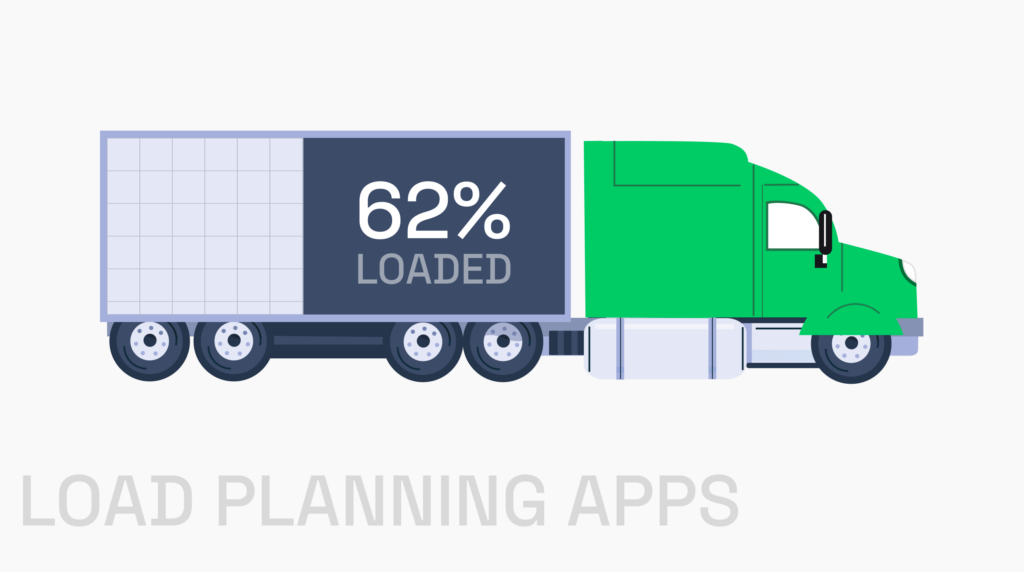
Load planning apps assist logistics companies in optimizing the loading of goods into vehicles. They ensure efficient space utilization and safe loading practices.
| How it can help business | Load planning apps improve loading efficiency, maximize vehicle capacity utilization, enhance safety, and reduce transportation costs. |
| Main features | 3D Load Visualization Automated Load Optimization Load Balancing and Weight Distribution Integration with TMS and WMS Load Planning Templates Drag-and-Drop Interface Load Sequence Optimization Safety Compliance Checks Cargo Space Utilization Metrics Reporting and Analytics |
| Most popular apps | LoadPlanner, EasyCargo, Cube-IQ |
| Price and time range for development | Development costs typically range from $25,000 to $120,000, with timeframes varying from 3 to 8 months. |
10) Customs compliance apps
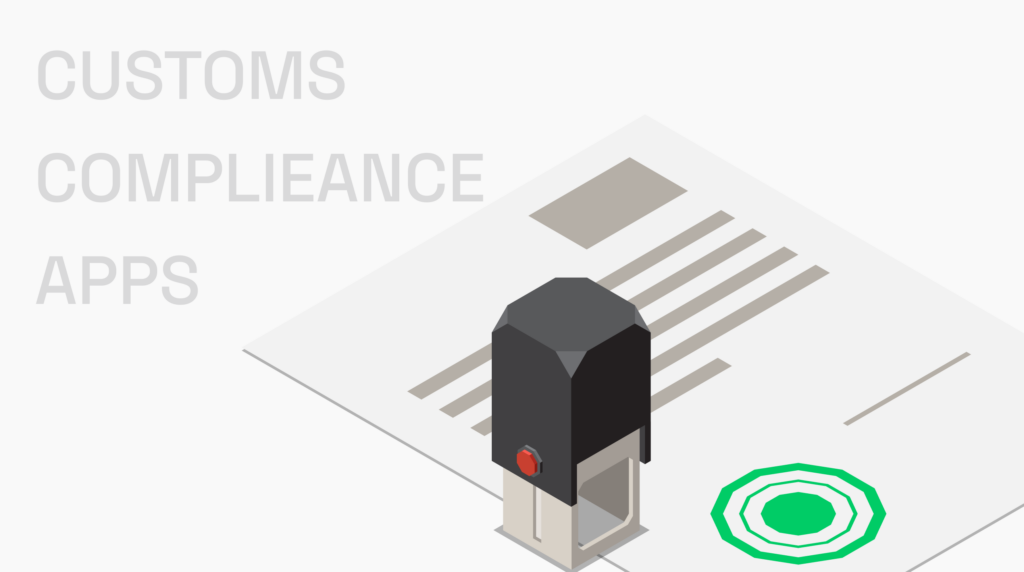
Customs compliance apps help logistics businesses manage and streamline the customs clearance process. They ensure compliance with international trade regulations and reduce delays at borders.
| How it can help business | Customs compliance apps minimize customs delays, reduce compliance risks, streamline documentation, and improve international trade efficiency. |
| Main features | Automated Document Preparation HS Code Classification Tariff and Duty Calculation Integration with Customs Authorities Real-Time Shipment Tracking Trade Compliance Checks Electronic Data Interchange (EDI) Customs Declaration Submission Compliance Reporting Audit Trail Management |
| Most popular apps | Amber Road, Descartes, Integration Point |
| Price and time range for development | Development costs typically range from $40,000 to $150,000, with timeframes varying from 4 to 10 months. |
How Volpis can bring your logistics app idea to life
Regularly ranked among the Top Custom Software Development Companies on Clutch, Volpis has been leveraging the power of technology to assist logistics business owners in reaching unparalleled milestones. Our commitment to excellence is reflected in the glowing reviews from our customers, who consistently praise our dedication to delivering exceptional results.

Read more reviews from our valuable customers here
We invite you to explore our portfolio for a detailed look at the innovative software systems we have developed for our clients. Our team understands the nuances of the logistics industry and is committed to providing solutions that are tailored to your unique goals.
We’d love to answer any questions you may have. You can reach out to us via info@volpis.com with any questions or to explore how we can be part of your journey.






